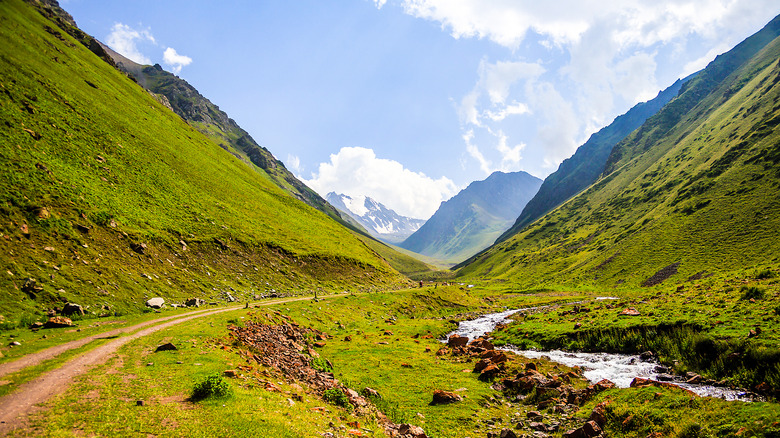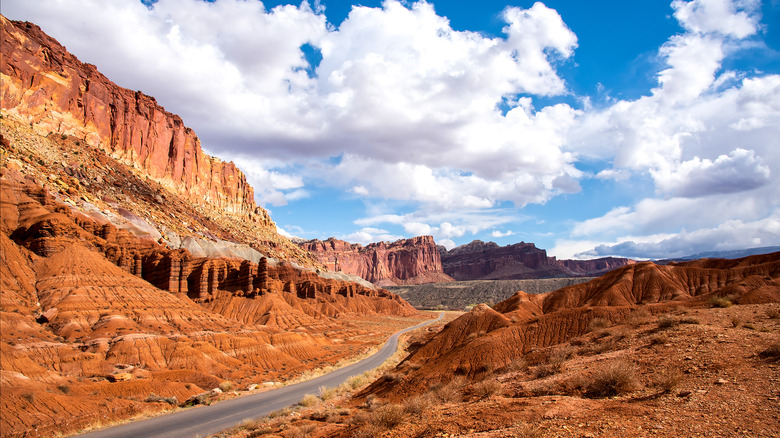Here's What Would Happen If Earth's Mountains Disappeared
What do the Earth's mountains mean for humanity? A lot of different things. For some who live in distinctly flat and peak-free areas, they're a sort of romantic novelty — a place to take endless photographs of on a vacation. For others, they're a fact of everyday life, and a very dangerous one if there are narrow paths to traverse involved.
For others still, they're a challenge; a chance at immortality. Why did Sir Edmund Hillary climb Mount Everest? In his own words, per the Academy of Achievement (via YouTube): "I never had a vision to climb Mt. Everest ... I started in the New Zealand Alps and I got more competent, and I climbed harder mountains there ... then we decided we'd like to go off to the Himalayas."
Mountains are some of nature's most awe-inspiring creations, and our world would be infinitely less imposing and less remarkable without them. Further, life as we know it today simply wouldn't exist without mountains.
It would be a mountainous problem
As World Atlas reports, the iconic mountain ranges of Earth are very, very old. For instance, the Rocky Mountains of North America date back to up to 80 million years ago. During the Laramide orogeny period, the North American tectonic plate was crossed by the Farallon ocean plate. The angle of contact — along with some hefty earthquakes — resulted in the crust of the Earth rising in remarkable shapes. Millions of years of glacial erosion later, the result is the majestic Rockies as we now know them today.
Why are mountains crucial to life on Earth? According to Patty Inglish of the Active USAF Civil Air Patrol (via HubPages), the terrain required for thriving plant life — and thus everything else — could not exist without mountains. If they disappeared, trees would perish, which would lead to a devastating domino effect. According to Inglish, the planet's atmosphere itself would eventually be lost. Meanwhile, the weather, too, could be dramatically affected on a global scale. Great desert storms could occur in regions no longer shielded by mountains. This may make these areas more barren than ever, with the terrible erosion that floods could cause.
The Kilian Jornet Foundation works tirelessly to protect and conserve mountain regions and emphasize exactly how crucial they are to our planet. For starters, it underlines that mountains and glaciers reflect solar radiation, help to mitigate the effects of climate change, and provide 60% to 80% of the planet's fresh water (that would be the glaciers). They also cover one-quarter of the planet's surface, further highlighting just how devastating a hypothetical disappearance would be.

